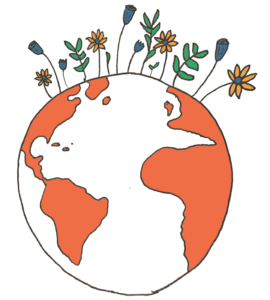Nonprofit Spotlight: Beyond Plastics
 Giving
Giving
In November 2021, PennyLoafer donors collectively gave to Beyond Plastics!
The Rundown
Years founded: 2019
Leadership: Founder Judith Enck has worked in environmental advocacy her entire career. A high profile environmental policy expert and former U.S. EPA Regional Administrator under the Obama Administration, she’s worked on waste issues from local to national contexts for over 30 years.
Issue they address: plastic pollution (environmental justice and health).
What they do: work to end plastic pollution.
How they do it:
Advocate for policies that reduce plastic use and production, and policies that ban single use plastics.
Provide educational resources and tools, such as ways to advocate, meet with representatives, host town halls, and draft local legislation.
Collaborate with and train Bennington College students (where it’s based) to be environmental leaders.
Research and promote alternatives to plastics.
Hold companies accountable for their waste.
Why they were chosen
Beyond Plastics focuses on the systemic reasons for why plastics end up in our oceans and rivers, shifting focus “upstream” to plastic production and use. Enck has decades of environmental public policy expertise and looks at waste issues from an equity perspective, promoting a grassroots advocacy approach.
- They provide draft legislation, resources and other tools to build the capacity of advocates working at the local level for policy change.
- As a newer org, they’ve already helped advocate for the National Bottle Bill, the Break Free From Plastic Pollution Act and efforts to prevent the sale of single-use plastic bottles in national parks.

 Learning
Learning
📈 Plastic production grew from 2M metric tons in 1950 to 348M metric tons in 2017, and is expected to keep growing. About 95% of plastic packaging is for single use items – think ketchup packets or food wrapping.
🌊 Less than 10% of plastics are actually recycled. And more than 11 million metric tons of plastic end up in our oceans every year.
🚫 Plastics have a myriad of health and environmental implications from its production (burning fossil fuels) to its disposal (pollution, blocked waterways & open burning).
🎬 This animated short, The Story of Plastic (4 min), helps explain the real causes and consequences of the global plastics crisis. It’s based off the 2020 Emmy award-winning documentary by the same name.
🛍️ And here are 10 simple ways to reduce single use plastics and packaging, including bringing your own reusable grocery bags to the store or reusable mug to the coffee shop, and buying in bulk.
📝 Finally, while many feel COP26 (the UN Climate summit that took place last month) left much to be desired in terms of moving the needle, here are some of the major takeaways.
If you enjoyed this and want to get involved, you can support the Climate Change cause on PennyLoafer, starting with as little as $5/month. Each month, you’ll support and learn about a different nonprofit fighting the climate crisis.
 Giving
Giving Learning
Learning